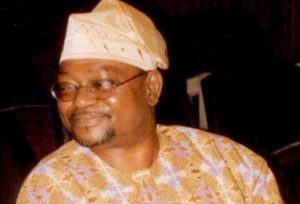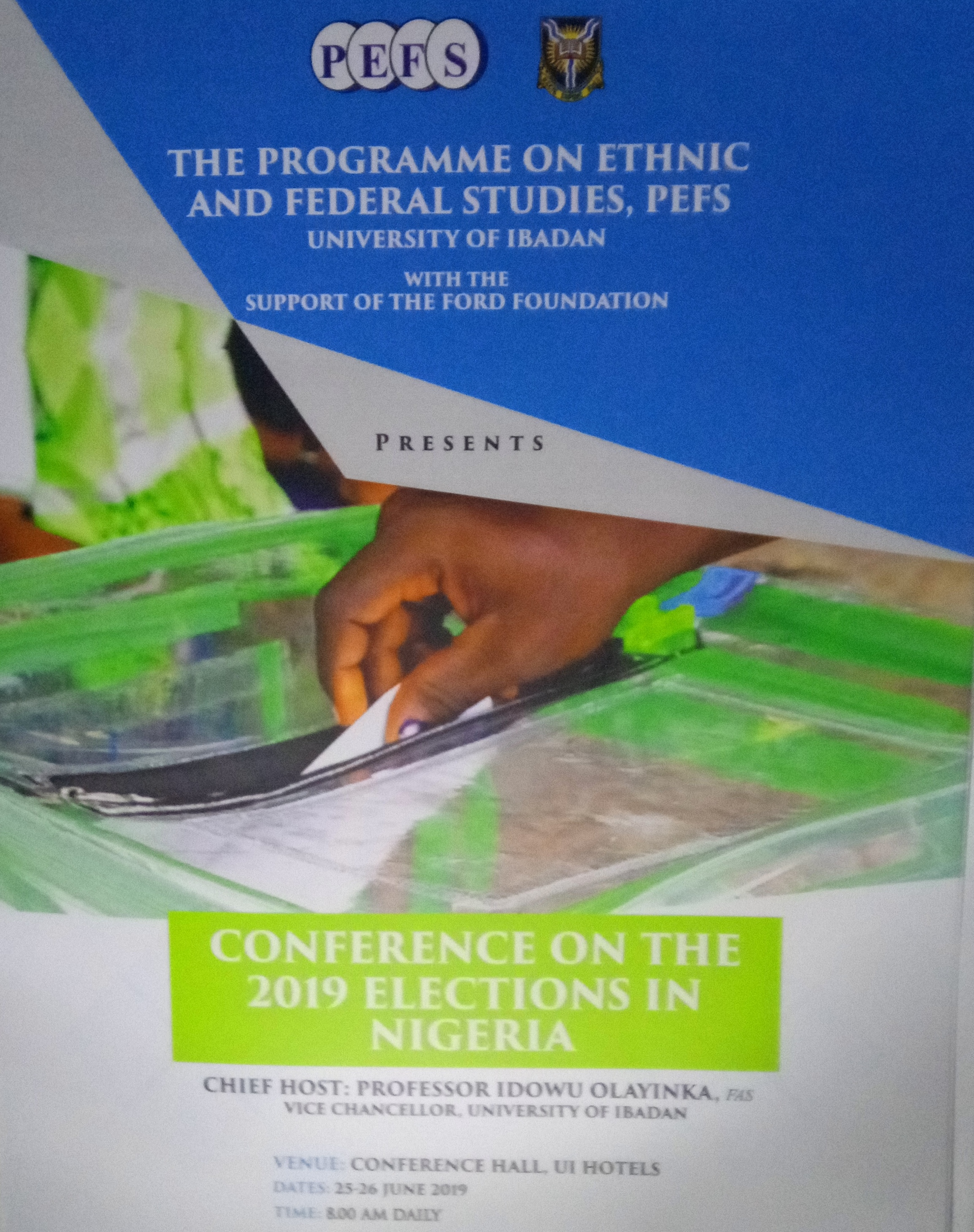A 2-day conference that must be the most diverse and toughest of such gatherings in recent times is now underway at the University of Ibadan in South-western Nigeria. Academics, civil society activists, politicians, political parties, the Independent National Electoral Commission, (INEC), security agencies, legislators, legal experts, policy makers and development practitioners are converging on the university.

Prof Eghosa Osaghae of PEFS

Prof Idowu Olayinka, VC, University of Ibadan and Conference Chief Host
They are there to review Nigeria’s 2019 General Elections in the hope that, according to the masterminds behind the 2-day conversation, such would offer pathways to better elections in Nigeria. The Programme on Ethnic and Federal Studies at UI which is organising the conference is also calculating that the keynote addresses, invited papers and roundtables would provide the basis for what is expected to be robust exchanges and debates on what they see as the transformation of elections in Africa from “being key levers of democracy to instruments of contested statehood and legitimacies”. According to this view, elections in much of Africa have become fundamental to the stability and survival of the state after becoming less of a means for franchise and democratic choices by citizens but wars in themselves, with many requiring judicial adjudications that are as fiercely contested as the elections themselves.
The programme of the event shows that Prof Idowu Olayinka, the Vice-Chancellor of the University of Ibadan, will open the conference Tuesday June 25th, 2019 with a welcome address. He would be followed by Mr. Innocent Chukwuma of Ford Foundation West Africa which is providing support for the conference.
Prof Adele Jinadu, one of the original three grandmasters of Federalism scholarship in Nigeria will launch the intellectual ground battle with the Keynote Address. His presentation is on “Elections, Democracy and the State in Africa”.

Prof Okello Oculi

Prof Adigun Agbaje
When the second session opens later in the day, Prof Okello Oculi, a veteran of Ahmadu Bello University, Zaria years gone by, would be speaking on “The 2019 General Elections in Comparative African Perspective”. He will be sharing that section with Prof Harry Garuba, the South African based Nigerian academic who will be looking at “The South African Experience” and then Prof Adigun Agbaje, from the UI Political Science basement. His own topic is “The Historical and Social Contexts of Elections and Transitions in Nigeria”.
Still on Day One, Prof CBN Ogbogbo, the immediate past President of the Historical Society of Nigeria, (HSN) will be further diluting the dominance of political scientists when he takes on “The 2019 Elections in Historical Perspective”. Following him is Dr. Abubakar Siddique Mohammed, the Ahmadu Bello Zaria political scientist who would be guiding his audience on “Party Politics and Elections in Nigeria”. Prof. Godwin Onu would take the same theme from a slightly different angle of “Intra-Party Politics and the 2019 Elections”.

Dr. A . S. Mohammed

As cropped from a Channels TV appearance
Prof Etannibi Alemika, the University of Jos Sociologist, will intervene on “Electoral Umpires and GateKeepers in the 2019 Elections: INEC, Police, Security Agencies”. Prof Edoba Omoregie from the National Institute for Legislative Studies, (NILS) will close the day on “Judicial Activism and Interventions in the Electoral Process: Are or Should Courts Be an Alternative?”
Day Two won’t be any less interesting with tested scholars, election management experts and activists taking on various aspects, some of which are voter behaviour in the 2019 elections; electoral violence; the contradictions of internal party politics; academics and elections; election observers and monitors; issues in media coverage of elections and electoral reforms.
The comprehensiveness of the touch might be the basis of the confidence of the Programme on Ethnic and Federal Studies, (PEFS), the organisers of the conference that the discussions would offer pathways to better elections in Nigeria.



























